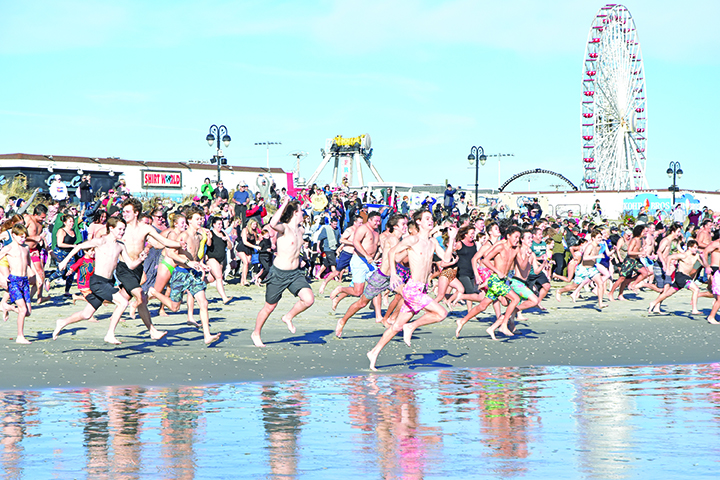BRIGANTINE — If you see a seal lying on the beach, leave it alone. That’s the advice of Bob Schoelkopf, director of the Marine Mammal Stranding Center.
The center currently is posting signs in coastal towns that read, “Give seals space, stay 150 feet away, seals rest on our beaches, stay back and give them space. Report injured, sick or dead seals to (609) 266-0538.”
Cape May Point is preparing to install one on its beach.
Schoelkopf said the sign project is a collaboration with the National Marine Fisheries Service to make the public more aware of the fact that seals do visit New Jersey beaches and are federally protected. He said a whale-watching group from northern New Jersey sponsored the cost of some of the signs.
He said the signs are being distributed by volunteers. Schoelkopf encouraged those who find a seal on the beach to take a photo of it from a distance and email it to the center.
“We can look at that photo and see the posture of the seal, the way it’s lying there, what condition it’s in, what species it is, what size it is,” he said. “That’s a lot of information that can be gained from a cell phone.”
Do not touch or try to pet a seal.
“First of all, it’s a wild animal. They will bite, and the bite of a seal is very infectious, almost within 24 hours you’ll be infected from a seal bite,” Schoelkopf said. “They are also federally protected, and you can be fined several thousand dollars if you take it upon yourself to go up and try to pet it, and chasing it back into the water is considered harassment.”
He said if a seal wants to go back into the water, it will do so on its own. Seals are usually on the beach because they are trying to rest, warm up and dry out, Schoelkopf said.
Seals feed in the water and when they are finished, they haul out and need to rest.
“In their feeding behavior, they use up blood oxygen from diving for the fish,” he said. “They need to recoup that oxygen level in their blood by resting on the beach and going to sleep and drying out.”
All species of seal will beach themselves. Schoelkopf said warmer weather in the early part of this winter kept seals north of this area.
“Right about now, the gray seal pups will be moving south. The mothers have left the birthing beaches and left the pups on their own now, so when they get hungry enough, they’ll wade into the water and head south with the currents,” he said.
Schoelkopf recommended visiting explore.org, which has wildlife cameras around the world including one trained on gray seals giving birth on an island off Maine. He said the center watches the camera for mother seals heading back into the water, which means the seal pups could soon be seen on our area beaches.
“When they come on our beaches, it’s usually because they have never eaten before and they are very hungry,” Schoelkopf said. “That’s why we need to be notified when they’re spotted.”
He said the public should not try to feed seals but call the center, which can make determine whether the seal is in trouble or just trying to rest.
Dogs should be kept away from seals.
“If a seal grabs ahold of the dog, you’re going to have a couple of thousand dollars in veterinary bills because the bite is so severe,” Schoelkopf said. “It will rip the dog open; it will cause a severe infection as well and it is also considered harassment.”
If someone provides a photo to authorities of a person letting their dog loose after a seal, a heavy federal fine may be levied on the dog’s owner, he said.
Schoelkopf said unnecessary interaction between people and seals may cause the center to have to remove a seal from a beach not because of anything wrong with the seal but because of people interfering with it.
“We’re running out of quiet places in New Jersey to relocate those baby seals,” he said. “If people will leave them alone, we can leave the seal alone on the beach until it’s ready to go back in.”
The center will accept donations or a business sponsorship to purchase more seal informational signs. Marine Mammal Stranding Center can be contacted at mmsc.org or by calling (609) 266-0538.
By JACK FICHTER/Sentinel staff


